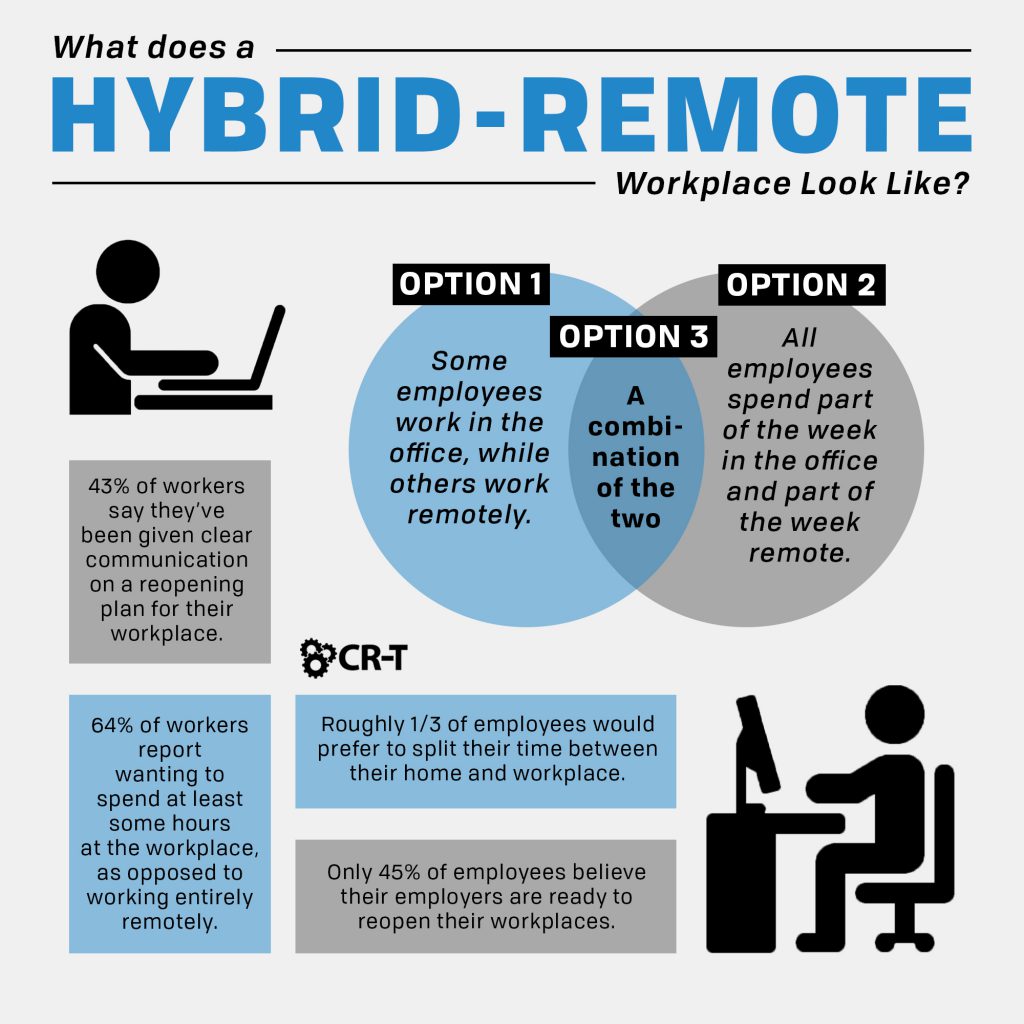Benefits of Hybrid Work
Hybrid work, also known as flexible work, is a work arrangement that combines remote work and in-office work. It offers numerous advantages for both employees and employers, providing a balance between the benefits of working from home and the benefits of working in a traditional office setting.
Increased Work-Life Balance
One of the primary benefits of hybrid work is the increased work-life balance it offers. Employees have the flexibility to work from home on certain days, allowing them to save time on commuting and spend more time with their families. This arrangement can lead to reduced stress levels and improved overall well-being.
Improved Productivity
Contrary to popular belief, hybrid work can boost productivity. With the freedom to choose their work environment, employees can create a setup that suits their preferences and maximizes their efficiency. Some individuals thrive in the quietness of their home office, while others prefer the collaborative atmosphere of a traditional office. Hybrid work allows employees to find their optimal work environment, leading to improved productivity.
Cost Savings
Both employees and employers can benefit from cost savings associated with hybrid work. Employees can save money on commuting expenses, such as fuel and parking fees. Additionally, they may have the opportunity to live in more affordable areas, as they are not required to be near the office at all times. On the other hand, employers can reduce office space and related expenses, as only a portion of the workforce is present in the office on any given day.
Increased Employee Satisfaction and Retention
Hybrid work arrangements have been shown to increase employee satisfaction and retention rates. Employees appreciate the flexibility and trust given to them by their employers, which in turn fosters loyalty and commitment. The ability to have a better work-life balance and work in an environment that suits their needs contributes to overall job satisfaction.
Enhanced Diversity and Inclusion
Hybrid work can also contribute to enhanced diversity and inclusion within organizations. By offering flexible work options, employers can attract a more diverse talent pool. Individuals with disabilities, caregivers, and those living in remote areas can have equal opportunities to contribute to the workforce. This diversity of perspectives and experiences can lead to increased innovation and creativity within the organization.

Hybrid work offers a range of benefits for both employees and employers. It provides increased work-life balance, improved productivity, cost savings, increased employee satisfaction and retention, and enhanced diversity and inclusion. As organizations continue to adapt to the changing work landscape, embracing hybrid work can be a strategic decision to attract and retain top talent while fostering a positive and inclusive work environment.
Frequently Asked Questions about the Benefits of Hybrid Work
1. What is hybrid work?
Hybrid work refers to a work arrangement where employees have the flexibility to work both remotely and in the office, combining the advantages of both environments.
2. What are the benefits of hybrid work?
Hybrid work offers increased flexibility, better work-life balance, reduced commuting time, improved productivity, and cost savings for both employees and employers.
3. How does hybrid work promote work-life balance?
Hybrid work allows employees to have a better balance between their personal and professional lives by giving them the freedom to work from home and avoid long commutes.
4. Can hybrid work improve productivity?
Yes, hybrid work can boost productivity as employees have the opportunity to work in an environment that suits them best, minimizing distractions and increasing focus.
5. What are the cost savings associated with hybrid work?
Hybrid work reduces commuting costs for employees and saves office space and utility expenses for employers, resulting in significant cost savings for both parties.
6. How does hybrid work benefit employee well-being?
Hybrid work enhances employee well-being by reducing stress related to commuting, offering a more flexible schedule, and promoting a healthier work-life balance.
7. Can hybrid work improve employee satisfaction?
Yes, hybrid work can increase employee satisfaction as it provides greater autonomy, flexibility, and the ability to work in a way that aligns with individual preferences.
8. How does hybrid work foster collaboration?
Hybrid work encourages collaboration by combining the benefits of in-person interactions for brainstorming and building relationships, with the convenience of remote collaboration tools.
9. What challenges may arise with hybrid work?
Some challenges of hybrid work include maintaining effective communication, ensuring equal opportunities for remote and in-office employees, and managing work-life boundaries.
10. How can organizations implement hybrid work successfully?
Organizations can implement hybrid work successfully by establishing clear policies, providing necessary technology and support, fostering a culture of trust and accountability, and regularly evaluating and adapting the hybrid work model.




